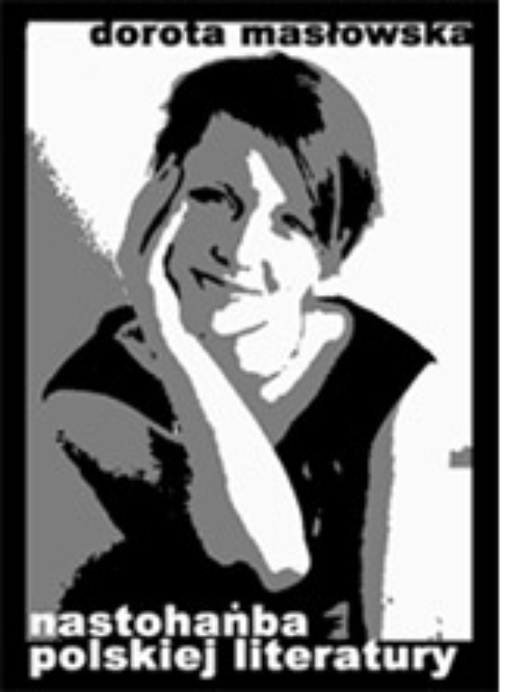Russophobia, Sex and Speed
Published on
Translation by:
 eleftheria zossima
eleftheria zossima
Dorota Maslowska, Polish literature’s child prodigy, describes the misery of a generation caught between communism and EU membership.
 ‘Literature is a window through which one people can look another in the eyes’. This is not the declaration of a great philosopher, but the words of Karl Dedecius, German translator of Polish literature and director of German-Polish Institute. Karl Dedecius is also the translator of the work of Dorota Maslowska, the latest Polist literary phenomenon, who opens a very similar window onto her people. In her first novel 'Schneeweiss und Russenrot' ('Snow-White and Russian-Red')the shooting star from Poland focuses on Andrzej. After his girlfriend leaves him, Andrzej wanders through the miserable grey apartment blocks of a small Polish city, looking for speed and fast sex, convinced that there's nothing left to live for.
‘Literature is a window through which one people can look another in the eyes’. This is not the declaration of a great philosopher, but the words of Karl Dedecius, German translator of Polish literature and director of German-Polish Institute. Karl Dedecius is also the translator of the work of Dorota Maslowska, the latest Polist literary phenomenon, who opens a very similar window onto her people. In her first novel 'Schneeweiss und Russenrot' ('Snow-White and Russian-Red')the shooting star from Poland focuses on Andrzej. After his girlfriend leaves him, Andrzej wanders through the miserable grey apartment blocks of a small Polish city, looking for speed and fast sex, convinced that there's nothing left to live for.
Andrzej represents many young people in Poland. He personifies a generation that doesn't know where to turn. Caught between two worlds - the fall of communism and EU entry - it's a generation which is desperately searching for its own Polish identity. A generation which is both drawn to the West, with all the opportunities it offers, and scared of it - scared of the prospect of 'selling-out', of being steam-rollered. A generation which has derogatory things to say about Russians and communism, which wants to break with its dark past, but which is at the same time nostalgic about how cheap things were in the old days. The original title of the book reads “The Russo-Polish War fought under the white-red flag” (translated). Even though Dorota stresses that her book is non-political and that it merely depicts reality, its title refers to a political reality: Russophobia, following years of being ruled from Moscow, and the pursuit of a Polish identity, which people are desperately trying to discover and live out.
Lost but sensitive souls
Dorota Maslowska's story paints a depressing picture of her generation. All values seem to have disappeared in post-communism Poland. This chaotic and grotesque depiction of a subculture laments the loss of a value system, where family was once important.
The book was a bestseller in Poland. The fact that it is written in slang is probably one of the reasons for its success. Just 18 years old when she wrote the book, Dorota Maslowska used her own type of language- vulgar, blatant and cool. Just the sort of language that appeals to young people. Questions of taste aside, the book is easy to read. It is relentless in its depiction of misery and hardship. According to the film producer Wiktor Grodezki, who is currently working on a screen play, the novel conveys the psychology of all young people in today’s Poland: they are lost souls but sensitive ones for all that. The book is mostly addressed at young people: at school and university, a subculture grown up in prefabricated houses and which has to discover its own identity in this period of transition. Even though reviewers have praised the finesse of this work, many young Polish people read the book only because of its popularity. They like the fact that it contains so much swearing. The sort of ranting that doesn't go on much in real life.
All eyes on Europe
The book depicts the everyday life of young Polish people. However, every coin has two sides. Older people have deigned to view “Snow-White and Russian-Red” as literature. People are appalled by the poor level of language. Young intellectuals prefer to look to Europe and its opportunities. They have done away with their dark Russian past and a new self-confidence for their Polish origin is emerging. Despite the consistent depiction of young people’s misery in Poland in the prefabricated houses of this one small town, we shouldn't forget that there is another Poland which is carving out its own future. A future full of hopes and aspirations with more opportunities than the elder generation could have dreamt of. The every day reality in a country that, following the collapse of communism has now opened the door to Europe, may seem dreary, but many people, and especially many young people, are dreaming of a future in a European Poland.
Translated from Hass auf Russland, Sex und Speed


